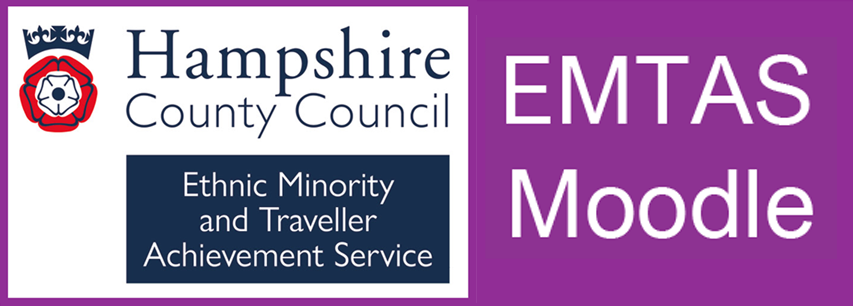Blog entry by Astrid Dinneen
Anyone in the world
In Diary of an EAL Mum, Eva Molea shares the ups and downs of her experience of bringing up her daughter, Alice, in the UK. In this instalment, Eva attempts to prepare Alice for her Italian Heritage Language GCSE.

I know it is a
cliché but: where does the time go??? It’s been one and a half years since my
last chapter, and I apologise for starving you, my affectionate readers.
So, let’s see what happened since I last told you about my adventures navigating the education system in the UK.
After sending the GCSE options form to the school, we had to wait for what felt like an infinite time before Alice’s choices were confirmed at the end of Year 9: Spanish, History and Dance. And a very happy child in da house!
Year 10 started in the best possible way: fewer subjects that Alice didn’t enjoy, and many of her besties in her classes. What could go wrong?
Well, it turned out that now Alice would have traded her “non-negotiable” Spanish for Drama, had we allowed that, and that Dance was not as simple as it had been presented at the GCSE Options Evening. On top of that, there was the Italian Heritage Language GCSE looming over her, and the even more horrifying prospect of being prepared for it by her very own MAMMA…
Every year, since Year 7, I had asked the school to let Alice take her Italian GCSE in Year 10 and, worn out by my requests, the head of MFL, who had also been Alice’s Spanish teacher in KS3, had agreed to that, being confident in Alice’s skills in Italian and knowing that, given my role as a bilingual assistant for EMTAS, I would be able to prepare her for the exam. Now all I had to do was to have regular weekly sessions with my darling child to get her as ready as she could be.
I decided to leave it for September, so that Alice could find her feet in Year 10, and then started planning our sessions for the quiet Sunday afternoons, when we would have plenty of time to go through all the papers. Or so I thought.
Session 1: Sunday 5th of October 2023, 3 pm, Reading paper, Higher Tier. Puffing like a steam train, Alice read the paper, answered all the questions, and left. Net working time: 40 minutes. Net upset time: the whole afternoon. When I told her that she had done really well with her first practice, my angel looked at me and spoke these words: “Mum, I am a native speaker, I told you it would be easy”. And that was it.
Session 2 was booked only in my diary; the other ones didn’t even make it there. I was completely defeated by my daughter’s silent dismissal. Despite my attempts, she found a whole lot of more interesting things to do rather than practise for her exam: meeting with her friends, reading a book, having to wash her Rapunzel hair, crosswords. Even homework! Really?? Her writing paper gathering dust on her desk, untouched… until a month before the speaking test, when I started to vocalise my anxiety about it.
Eventually, in the attempt to quieten me, the poor thing accepted to sit down and complete at least one listening and one reading past papers, as well as her writing one, and to practise the speaking test with me. And this is when we both learnt something.
Alice learnt that being a native speaker was not sufficient to pass the test with full marks because, despite her fluency in Italian and her very rich vocabulary, she was lacking exam technique. Alice was rather taken aback when, listening to the recording of her speaking test practice, she realised that she didn’t sound as fluent and confident as she thought she was. This epiphany shook her to the point that she willingly made room in her busy schedule for some Italian practice.
The lesson for me was that teenagers don’t want to learn with their parents. Let’s repeat it all together: TEENAGERS DON’T WANT TO LEARN WITH THEIR PARENTS!
It doesn’t matter if their parents are world experts in a given subject, children don’t want to learn with them, nor from them. I don’t know whether this is part of the generational conflict, or not wanting to be confronted with parents’ (high, in our case) expectations, but teenagers learn better with others rather than their parents. I know this might not be true for all children, but it certainly is for mine. And I should have known that because, even though my husband has taught Maths at college and Uni, Alice refuses categorically to be supported by Dad and so we have a Maths tutor.
The other challenge was that the Exam Officer at school asked me to find someone who could act as examiner for the Speaking Test, because the school didn’t have any members of staff who could do it, and obviously I couldn’t either because I was “known” to the student. Now, where we live, Italians are thin on the ground and finding a native speaker wasn’t so easy. Fortunately, one of my husband’s colleagues came to the rescue.
In the end, Alice passed her Italian GCSE with flying colours and got her so wished – read agonised – for 9, although she was very disappointed to have dropped some marks. If only she had gone through the vocabulary list I had printed out for her…
“All’s well that ends well” someone said, but do all families of students with EAL have a good experience with their Heritage Language GCSEs?
At the end of July, at a party, I happened to talk to two mums with EAL, whose girls (the same age as Alice) have also taken their Heritage Language GCSE in Year 10 in a maintained school. Two completely different experiences from ours.
Like Alice, one of these girls has both parents with EAL and first language is spoken at home all the time, therefore she is a very fluent and confident speaker. On the other hand, having lived here most of her life and having been educated in the UK, her reading and writing skills in first language are not as good as her listening and speaking ones. Unfortunately, parents were not provided with guidance or practice papers, and were left to figure it out for themselves.
The other girl has one parent with EAL and an English one, which means that English is the means of communication at home. The mum decided not to even attempt to prepare her daughter for the exam, and found a tutor that would help with that. The girl attended her sessions with the tutor, and worked harder than she would have with her mum (have I already said that teenagers don’t want to learn with their parents?). In this case as well, had it not been for the tutor, parents would have lacked the resources to support their child adequately.
The benefits of taking heritage language GCSE for students with EAL is invaluable, especially if they have not been long in the UK or if they are finding learning a bit challenging. Not only does it break the ice with taking exams in a different education system, but usually its good result boosts their confidence and self-esteem, as well as gives them a sense of pride in their heritage and community and opens doors to future job opportunities. It could also benefit the school’s end of key stage averages.
So, what could schools do to support students with EAL and make the whole experience easier?
A common mistake is to assume that when first language is spoken at home, children with EAL are also literate in their language. This is true in the many cases where parents have found pockets of time and encouraged their children to read and write in first language and fostered relationships with other speakers of said language. But parents’ evaluation can be a bit iffy, and I can unashamedly say that parents of children with EAL are biased when evaluating their children’s first language skills (if our children are not fluent and literate in our first language, we feel like we are not doing our job well, and we are not honouring our heritages, and we are depriving our children of the opportunity of being “perfectly” bilingual, and…and… shame on us!).
Once established that the student is capable, and willing (there is no point in forcing students if they are not ready to commit – Alice didn’t have a choice, though), to take the Heritage Language GCSE, a member of the MFL Department could have an in-person meeting with the student and their parents/carers to explain what the exam entails, its grading for the different tiers, and provide as many past papers as possible (schools are best placed to access the latest resources from the examination boards’ websites).
Another thing to consider is that KS4 students have very busy schedules, and sometimes they can fall behind with additional work, so having an adult in school – a member of the MFL Department, who could also help with teaching exam technique, their tutor, their head of year – that checks in with them regularly and monitors that they are completing their practice papers could really help them stay on track. Liaising with the parents/carers would also be a great way to remind them to use first language at home all the time, especially in the run up to the exams, as well as allowing the students to do some practice papers in school, perhaps during tutor time, or looking for opportunities to group together students that speak the same language so that they can practise their speaking skills.
This year GCSE season is fast approaching, my usually delightful daughter has already turned into a prickly porcupine, and I have studied the exams timetable to figure out when it will all be over and serenity will reign over our house again. At the moment, it seems a very distant fantasy.
All I can say
for now is: one down, ten to go!
Further information
More information about Heritage Language GCSEs and EMTAS support packages can be found on our website. The deadline for requests is the 1st of March.
[ Modified: Tuesday, 25 February 2025, 12:03 PM ]
